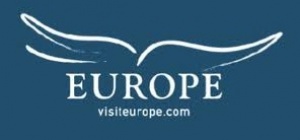European travel performance exceeds expectations in 2012

The European Travel Commission (ETC) has just published its last quarterly report on European Tourism in 2012 - Trends & Prospects. Inbound travel to Europe is expected to have grown by a solid 4% in 2012, following a year of strong growth (+7% in 2011). ETC expects tourism to rise at a more modest but steady pace in 2013, and to positively contribute to the improvement of fragile economies in Europe.
European travel performance exceeded expectations in 2012, with growth reported by the majority of both established and emerging destinations in Europe. This came after a year of even stronger growth (+7% in 2011) and despite the persistent negative economic climate in the Eurozone. Long-haul demand for travel to European destinations remained robust and travel from some traditionally small emerging origin markets steadily gained importance. An increasing number of Europeans also opted for travel within the regional borders, consistent with observed behaviour in previous periods of economic weakness. Tourism remains one of the few economic sectors steadily growing in the fragile economies in Europe.
Despite the persistence of a negative economic climate in the Eurozone, foreign visits to European destinations grew by a solid 4% in 2012. In line with worldwide trends, emerging destinations lead growth. Iceland (+20%), Lithuania (+12%) and Romania (+10%) topped the ranking with exceptional double-digit figures. Healthy growth is also reported by larger European destinations as Germany (+8%), Spain (+5%) and Austria (+5%).
The rejuvenation of the economy in key long-haul markets positively contributed to the rise of international arrivals to Europe. Most European destinations report robust growth from the US market, coupled with a strong rebound of Japanese travellers after the events of 2011. Among European outbound markets, Russia remains the fastest growing market from all reporting countries. Travel from Germany and the Netherlands to other European destinations also increased throughout much of 2012. Growth has been most notable to smaller Eastern European destinations while there have been some reported falls in travel demand and notably for some large destinations. The majority of destinations reported a higher number of visitors from France, but demand from this market slowed as 2012 progressed, in line with French economy’s trends.
Tourism remains one of the few economic sectors proving resilient in the fragile economies of Europe. The European Commission expects economic growth to gradually return in the European Union during 2013, with further strengthening appearing only in 2014. The consequences of the financial crisis will still weigh on the growth and employment performance of many countries in Europe next year, but “tourism can act as an engine for the economies of our region, through foreign-exchange earnings, the generation of income and the creation of much needed jobs”, said Mr Santander, Executive Director of the European Travel Commission.
ADVERTISEMENT
Outlook
The most significant risks for the global economy eased through 2012 and the 2013 outlook for the global economy is more optimistic. Inbound tourism from key long-haul markets is expected to continue growing through 2013. The persistence of troubles in some Eurozone economies will instead prevent a swift recovery and present significant challenges to economies in Europe. Growth from European markets hence remains the crucial element for European tourism to realize its full growth potential in 2013. Yet, a comparatively weaker euro is likely to benefit Eurozone destinations by improving price competitiveness.
Although it will be hard to match the strong recent performance, ETC expects European destinations to grow on average by 1% to 3% next year, with marked differences across destinations.

